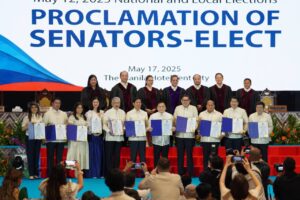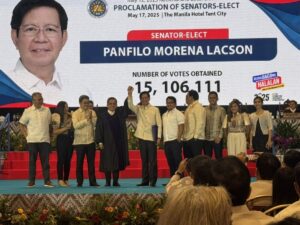THE PHILIPPINES is hoping to attract more Taiwanese firms to make the Philippines their manufacturing hub in the region, given the country’s preferential access to some of the world’s biggest markets namely the United States and Europe.
Philippine trade officials invited Taiwanese manufacturing companies anew during a recently held Joint Economic Commission (JEC) with Taiwan. Representatives from the Taiwanese government flew in the country to hold a dialogue with their counterparts here, accompanied by a business delegation, Trade Assistant Secretary Ceferino S. Rodolfo said in an interview.
“We talked about cooperation projects with Taiwan, normally about small and medium enterprise (SME) development and about creative industries. Similar to our pitch to other countries like Japan, we’d like Taiwan to make us a base for Southeast Asia because of our existing preferential access to the European Union and the United States. That’s what we’re working out with them,” Rodolfo explained.
The trade official was referring to the country’s inclusion in the generalized system of preferences of the EU and the US. The EU GSP+ allows the zero-duty entry in the 28-member bloc of locally made products across 6,200 lines over a 10-year period, while the US GSP eliminates duties on about 5,000 types of products if American firms import these from 122 designated beneficiary countries and territories, which included the Philippines.
As it is, the Philippines already has good economic bilateral ties with Taiwan, which is already the third or fourth largest investor in the country, according to Rodolfo.
However, the JEC is expected to further boost trade and investment ties between the Philippines and Taiwan as it served as an avenue where Taiwanese firms and the government can raise issues and concerns regarding the conduciveness of the business climate here.
Such business environment issues relate mostly to trade facilitation and easing the way business is done in the country. Some have raised problems about regulations and the slow release of permits, among others.
“What we try to do is facilitate. Mostly this is about lack of awareness about existing regulations and, on our part, what we do is to mainly provide them with information on what is happening,” Rodolfo said. Amy R. Remo



